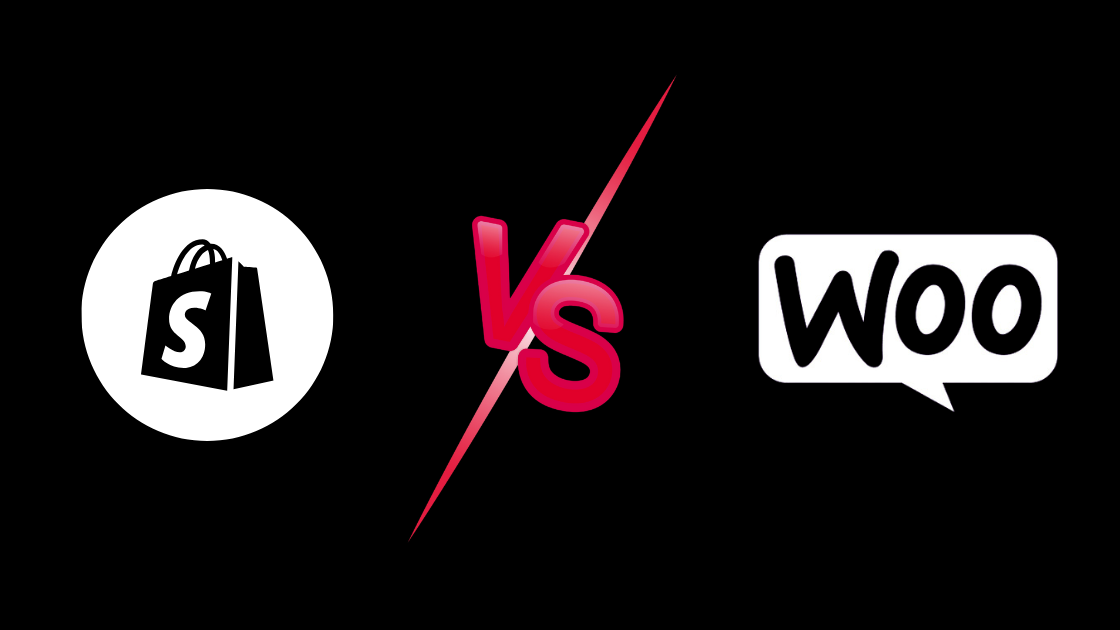Are you planning to set up an online store in 2023 and wondering which e-commerce platform to choose? Shopify and WooCommerce are two of the most popular choices for building an online store. In this article, we’ll compare Shopify and WooCommerce to help you make an informed decision.
What is Shopify?
Shopify is a fully hosted e-commerce platform that allows you to create an online store without the need for technical skills. With Shopify, you get everything you need to set up and run an online store, including hosting, a domain name, and a website builder.
Shopify offers a variety of features, including:
- A user-friendly website builder that allows you to customize your store’s design without any coding skills.
- An app store with over 6,000 apps that allow you to extend your store’s functionality.
- A range of payment gateways and shipping options.
- 24/7 customer support.
What is WooCommerce?
WooCommerce is a free, open-source e-commerce plugin for WordPress. With WooCommerce, you can turn your WordPress site into a fully functional online store.
WooCommerce offers a variety of features, including:
- The ability to sell physical and digital products, subscriptions, and memberships.
- A range of payment gateways and shipping options.
- The ability to customize your store’s design with templates and plugins.
- A large community of developers and users who offer support and resources.
Shopify vs WooCommerce: Which Is Better In 2023?
When it comes to choosing between Shopify and WooCommerce, there is no clear winner. The best platform for you depends on your specific needs and preferences.
Here are some factors to consider when choosing between Shopify and WooCommerce:
Ease of Use: If you’re new to e-commerce and don’t have technical skills, Shopify may be the better option for you. Shopify’s website builder is very user-friendly, and you don’t need to worry about managing your website’s hosting.
On the other hand, if you’re comfortable with WordPress and have some technical skills, WooCommerce may be a good option. WooCommerce is easy to install and set up, and you can customize your store’s design using WordPress themes and plugins.
Cost: Shopify offers a range of pricing plans, starting from $29 per month. This includes hosting, website builder, and support. However, you may need to pay for additional apps and plugins.
WooCommerce, on the other hand, is free to use. However, you will need to pay for hosting, a domain name, and any plugins or themes you use.
Customization: Both Shopify and WooCommerce offer a range of customization options. However, WooCommerce is more flexible when it comes to customization. You can customize your store’s design using WordPress themes and plugins, which gives you more control over your website’s appearance and functionality. Shopify’s website builder also offers customization options, but they are more limited than what you can achieve with WooCommerce.
Scalability: Both Shopify and WooCommerce can scale to meet your business’s needs. However, Shopify is a fully hosted platform, which means it can handle more traffic and sales without slowing down your website. With WooCommerce, you will need to manage your hosting and website performance, which can be a challenge as your store grows.
Support: Both platforms offer customer support, but Shopify has a dedicated support team that is available 24/7. WooCommerce support is community-driven, which means you may need to rely on forums and resources to get help.
SEO Optimization
When it comes to SEO, both Shopify and WooCommerce are well-equipped to help your store rank well in search engine results pages (SERPs). However, there are some differences in how each platform approaches SEO.
Shopify offers built-in SEO features, including meta tags, URL structure, and mobile optimization. Shopify also offers an app store with SEO apps that can help you improve your store’s SEO.
WooCommerce is also SEO-friendly, with features such as customizable permalinks, meta descriptions, and breadcrumb navigation. However, WooCommerce does require more technical knowledge to optimize for SEO.
Conclusion
Choosing between Shopify and WooCommerce comes down to your specific needs and preferences. If you’re new to e-commerce and don’t have technical skills, Shopify may be the better option for you. On the other hand, if you’re comfortable with WordPress and want more control over your store’s design and functionality, WooCommerce may be a good choice.
Both platforms offer SEO features that can help your store rank well in SERPs. Shopify is more user-friendly and easier to set up, while WooCommerce is more customizable and flexible.
Ultimately, the choice between Shopify and WooCommerce comes down to your specific needs and goals for your online store. Whichever platform you choose, make sure to optimize your store for SEO to attract more organic traffic and increase sales.

